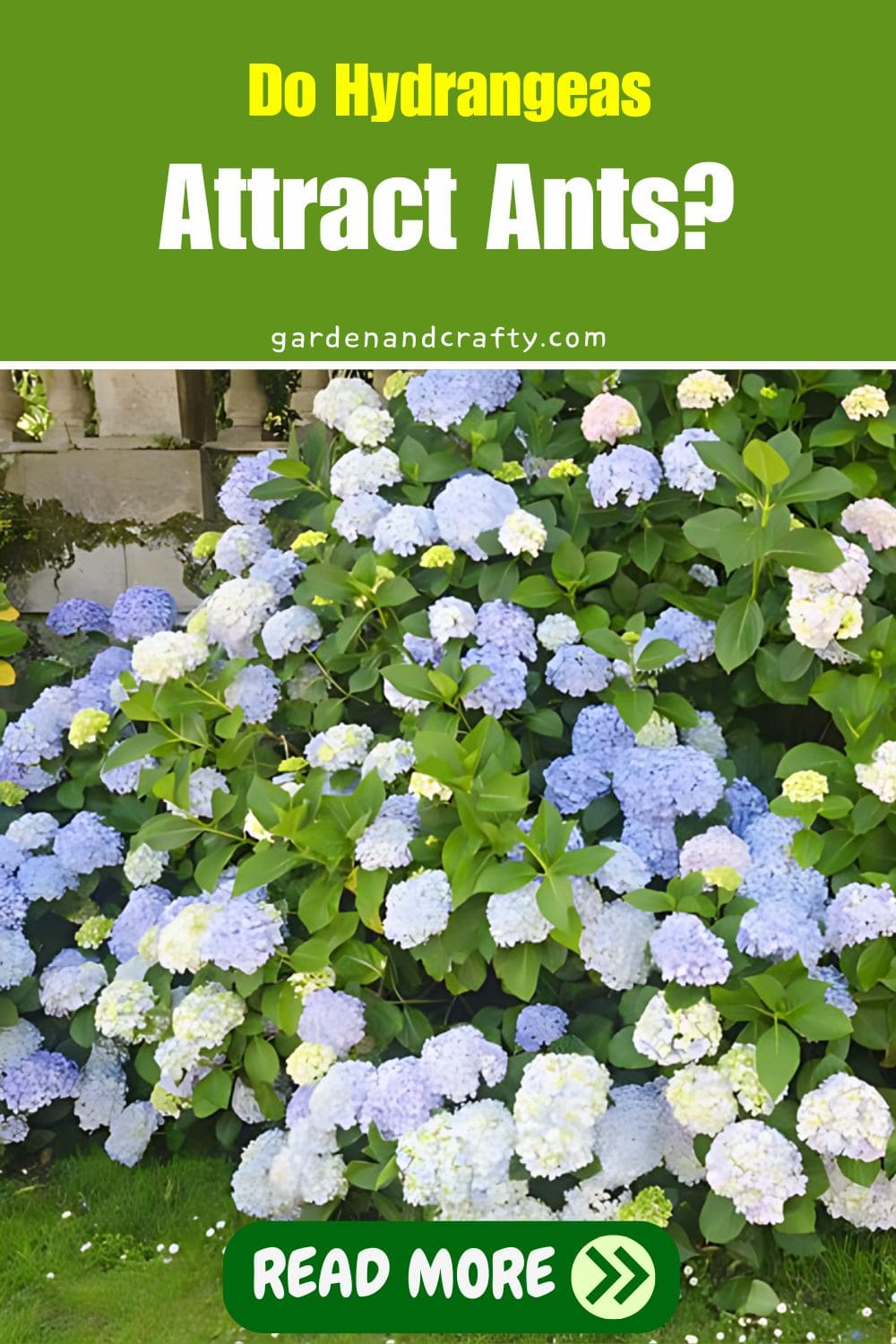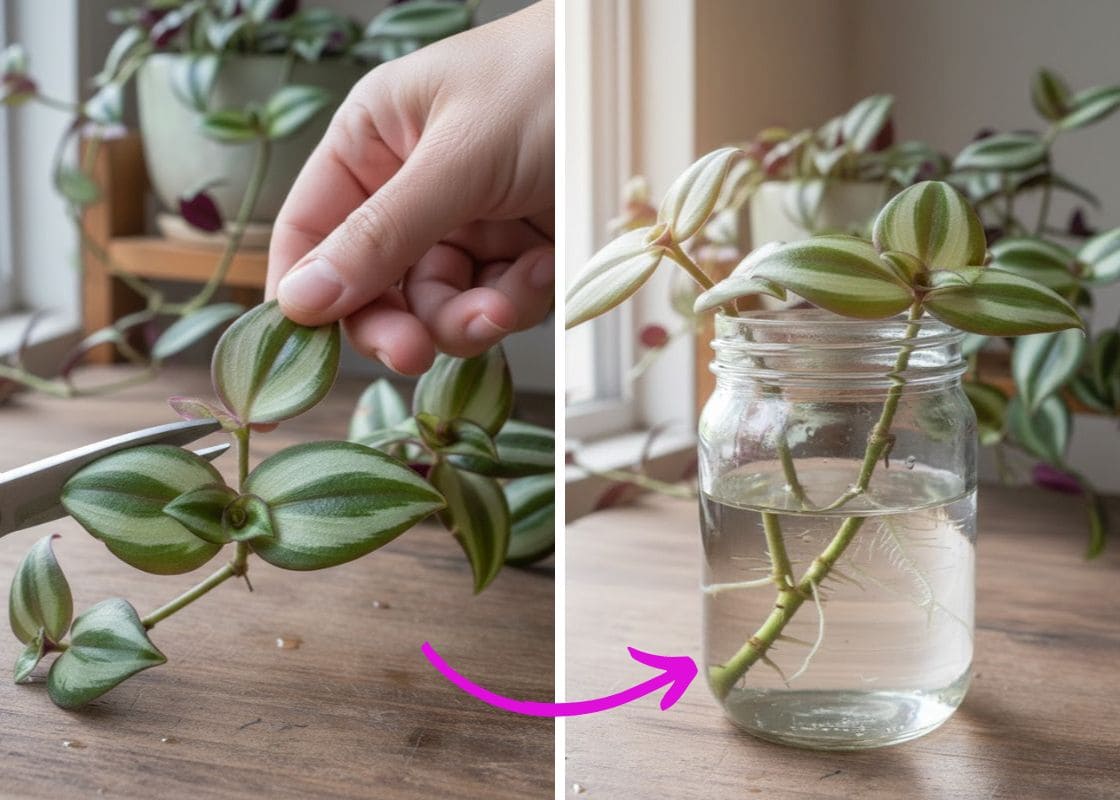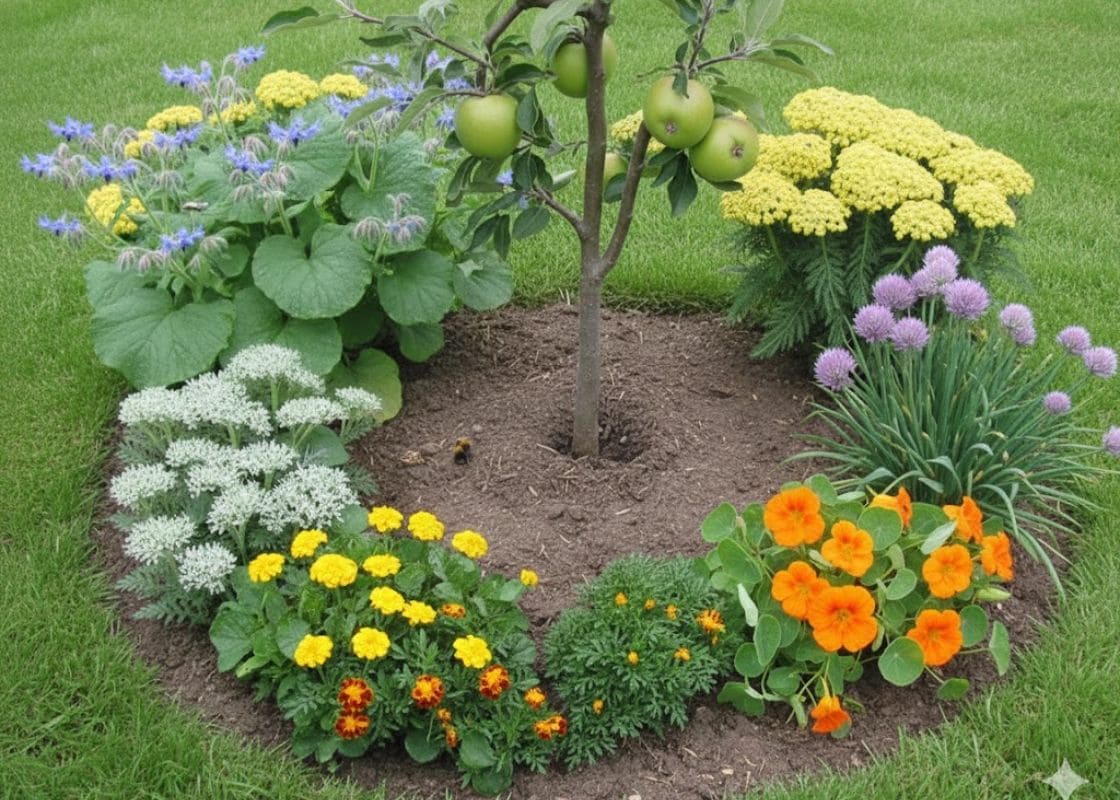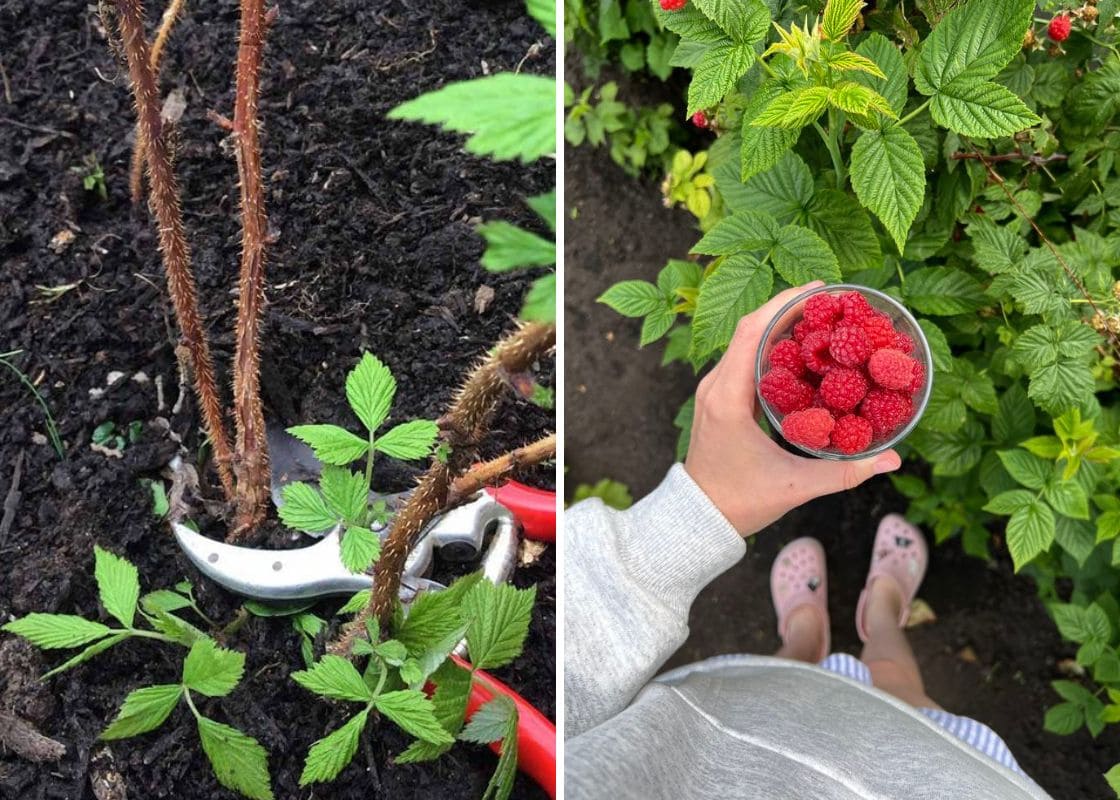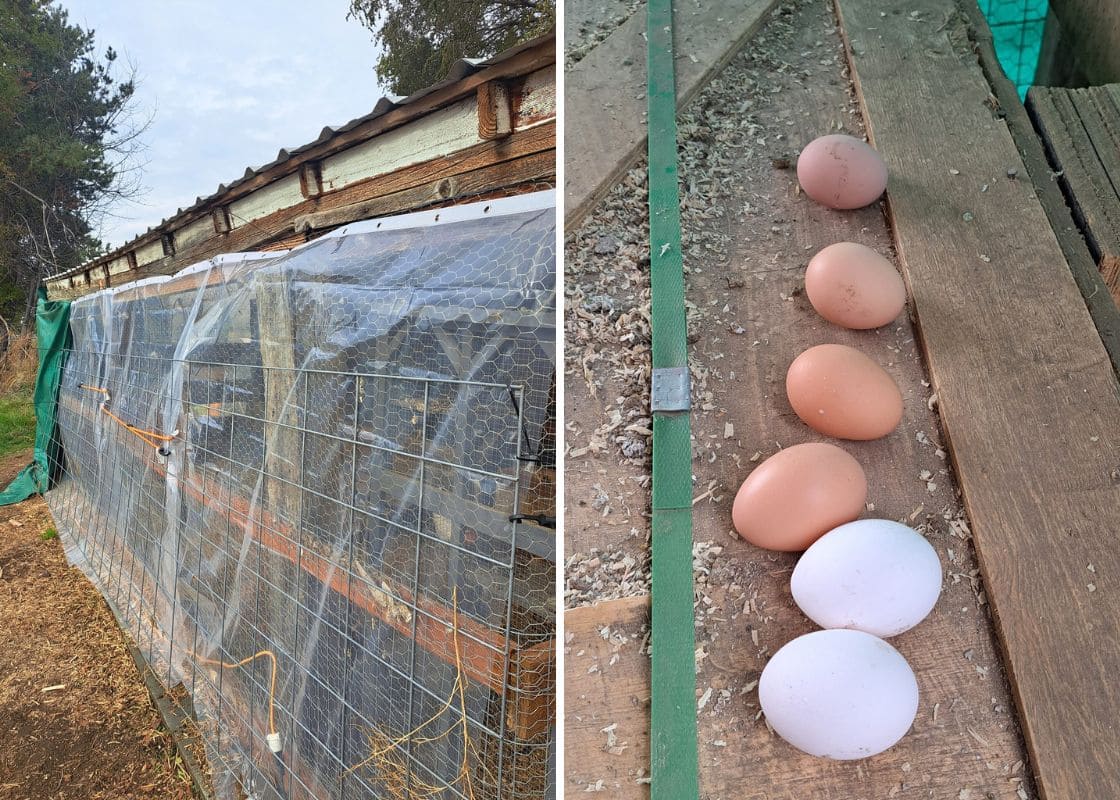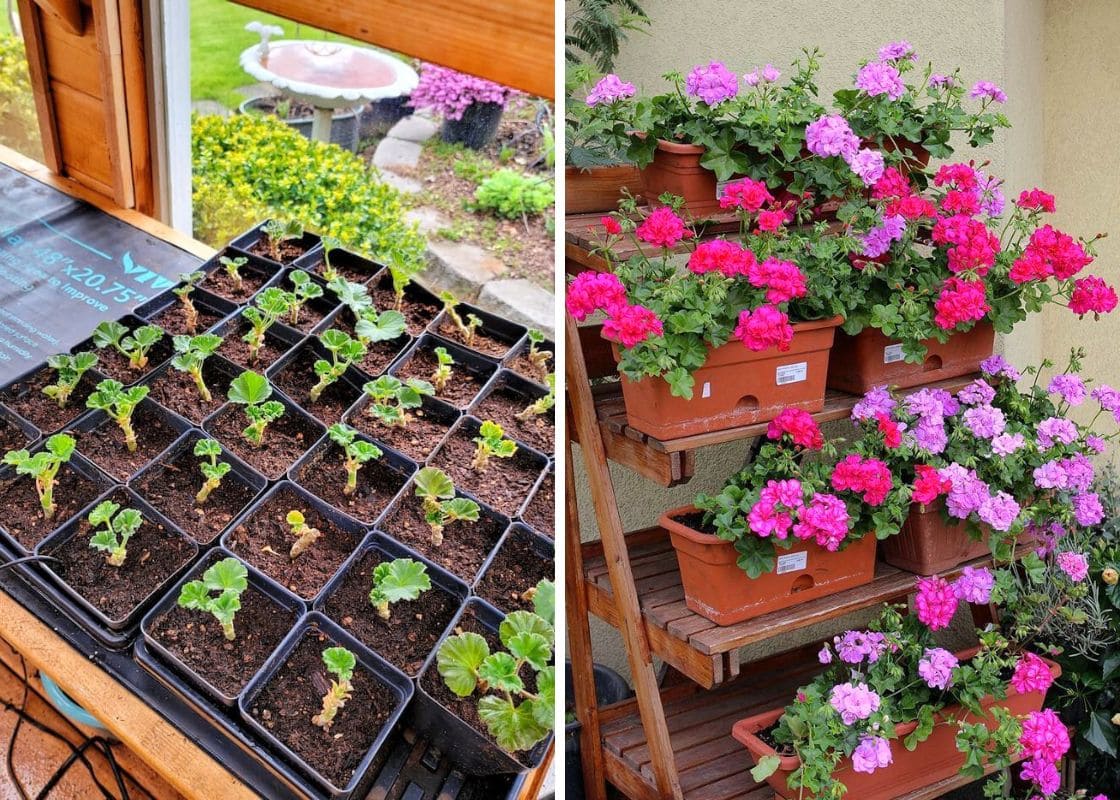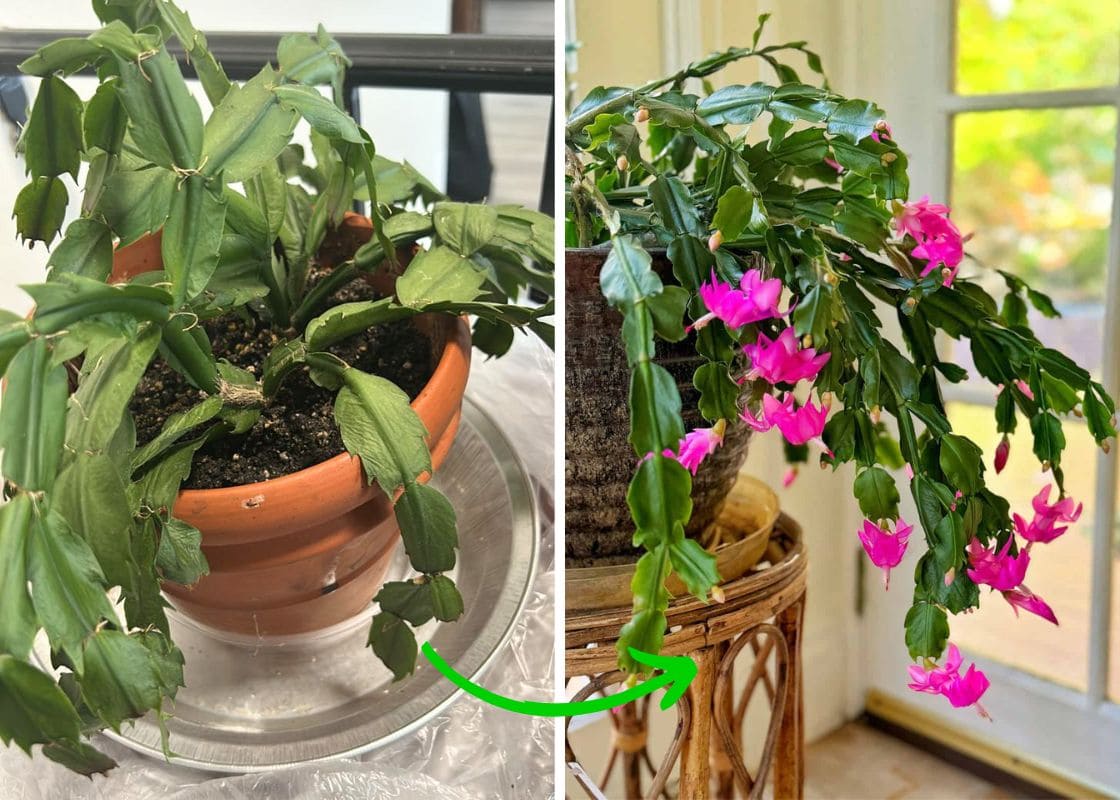Have you ever planted beautiful hydrangeas, only to find them overrun with ants?
Hydrangeas are a beloved choice for many gardeners, known for their vibrant blooms and lush, green foliage. Their popularity stems from their ability to brighten up any garden with an array of colors, from vivid blues to soft pinks.
However, it can be frustrating to see these lovely flowers teeming with ants. Gradually, you start to wonder if hydrangeas attract ants and they can affect your flowers.
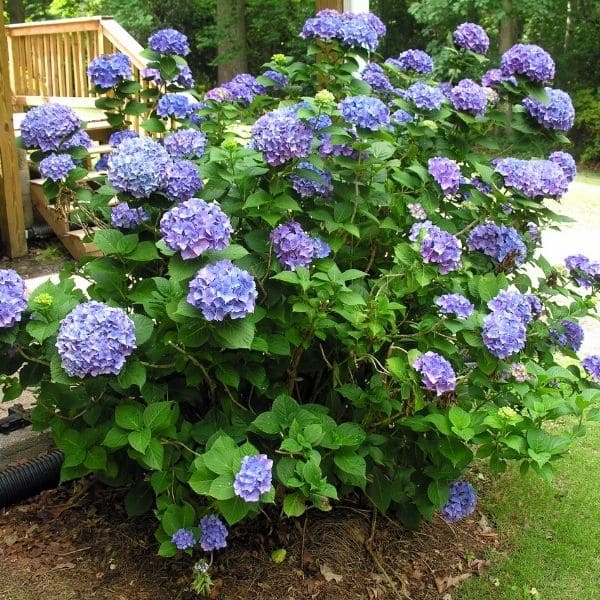
| Scientific name | Hydrangea |
| Common name | Hydrangea |
| Light | Partial shade to full sun |
| Water requirement | Moderate to high |
| Soil pH | Acidic to neutral |
| Flower color | Blue, Pink, White, Purple, Red |
| Bloom time | Spring to late autumn |
| Growth Habit | Shrubs, small trees, climbing vines |
| Hardiness Zones | 5-9 |
| Native | Western South America, Central America |
Do Hydrangeas Attract Ants?
No, not directly. Hydrangeas don’t lure ants on their own, but ants often appear because of pests like aphids and scale insects that produce honeydew, a sugary substance ants love.
These pests can harm your hydrangeas by sucking sap, causing weakened growth and fewer blooms.
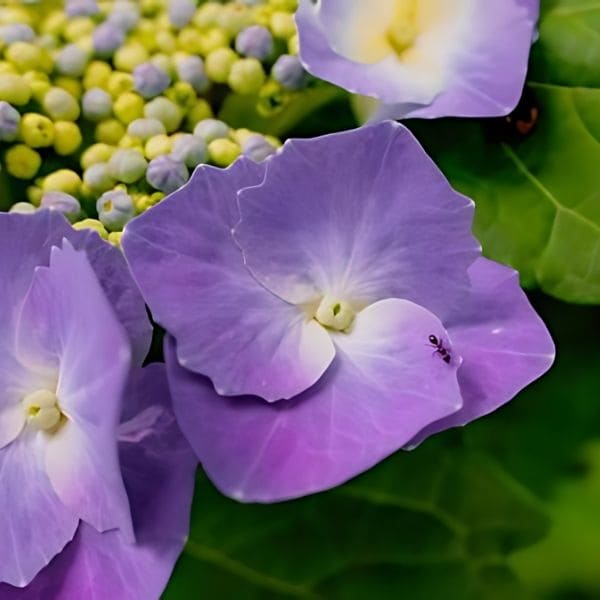
Why Ants Might Be Attracted to Hydrangeas?
Aphids and Honeydew
Aphids might be the culprit for the presence of ants in your hydrangeas.
Aphids feed on the sap of hydrangea leaves and stems, piercing plant tissues with their needle-like mouthparts to suck out the nutrient-rich fluids. This feeding can weaken the plant, cause leaves to curl, and stunt overall growth, leading to less vibrant blooms.
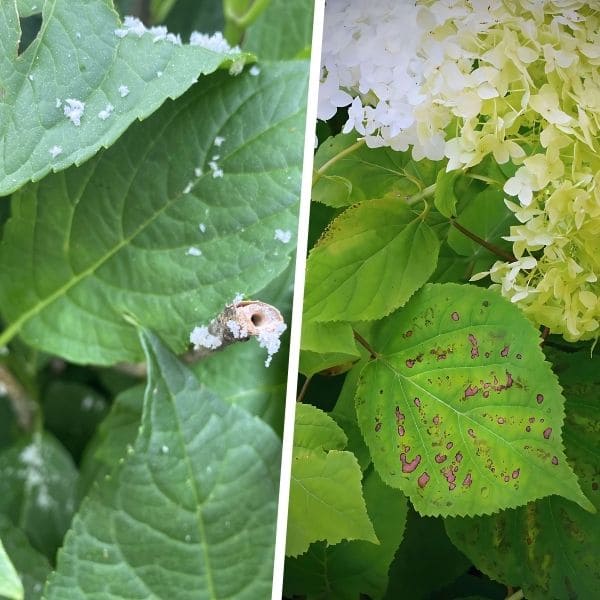
While aphids are a problem on their own, they bring an additional issue: honeydew. As aphids feed, they excrete a sweet, sticky substance known as honeydew.
Honeydew is primarily composed of sugars and amino acids, making it an attractive food source for ants. Research has shown that ants are highly attracted to sugar-rich substances, which is why they are often seen farming aphids on plants like hydrangeas (Stadler & Dixon, 2005).
The relationship between ants and aphids is mutually beneficial. Ants protect aphids from predators, such as ladybugs and lacewings, in exchange for a steady supply of honeydew. This protective behavior ensures that aphid populations remain stable or even increase, exacerbating the damage to your hydrangeas.
Furthermore, the honeydew can encourage the growth of sooty mold on the plant, which can block sunlight and further stress the plant.
Nectar and Sugary Substances
If you find ants on your hydrangeas, they are likely there for the nectar and sugary substances.
Hydrangeas, like many flowering plants, produce nectar to attract pollinators. This nectar, rich in sugars and essential nutrients, can also lure ants. While ants are not typical pollinators, their attraction to the sugary nectar is strong.
Nectar is not the only sugary substance that can attract ants. Sometimes, hydrangeas can have sap leaks or honeydew from other pests like aphids, which is another sugary substance.
Ants have a keen sense of smell and are highly attracted to sucrose and fructose. They will travel long distances to find a reliable food source.
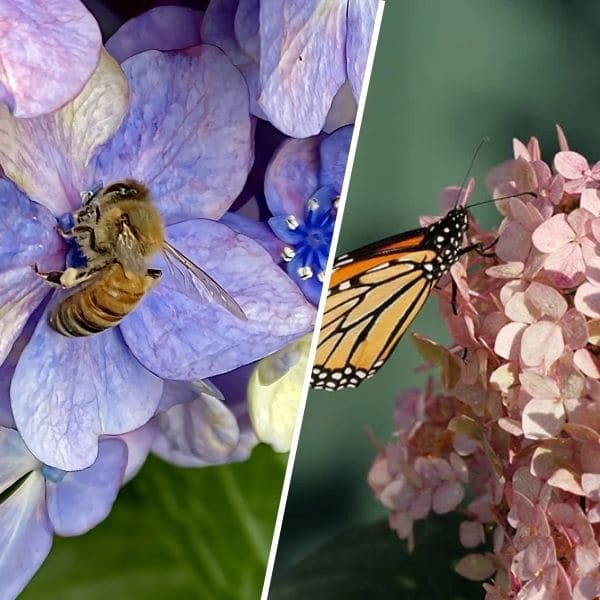
Moisture and Mulch
If you’ve ever grown hydrangeas, you will know that they thrive in well-watered environments. That is the reason why ants are naturally attracted to hydrangeas as they need water to survive and maintain their colonies.
Besides, mulch is important when caring for this plant. While mulch is beneficial for retaining soil moisture and regulating temperature, it also creates an ideal habitat for ants. The damp, protected environment under the mulch offers ants a perfect nesting site.
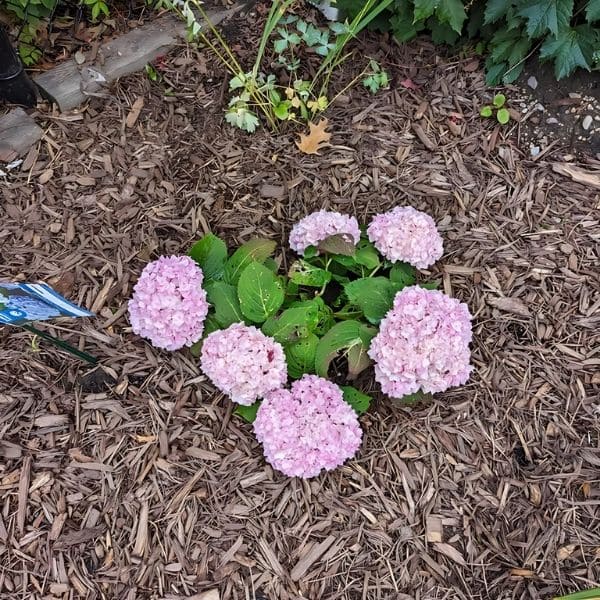
Decomposing Organic Matter
Another cause of the presence of ants in hydrangeas is decomposing organic matter in the soil. These flowers often have a layer of mulch or organic debris around their base to help retain moisture and improve soil health.
However, as this organic matter breaks down, it creates an attractive environment for ants.
Decomposing plant debris, such as fallen leaves and flowers, provides both food and a habitat for ants. They feed on the fungi and microbes that thrive in decaying organic matter.
According to scientists, the presence of decomposing organic material in soil can significantly increase ant activity. This rich, nutrient-dense environment supports the growth of ant colonies, which is why you might notice an uptick in ant activity around your hydrangeas.
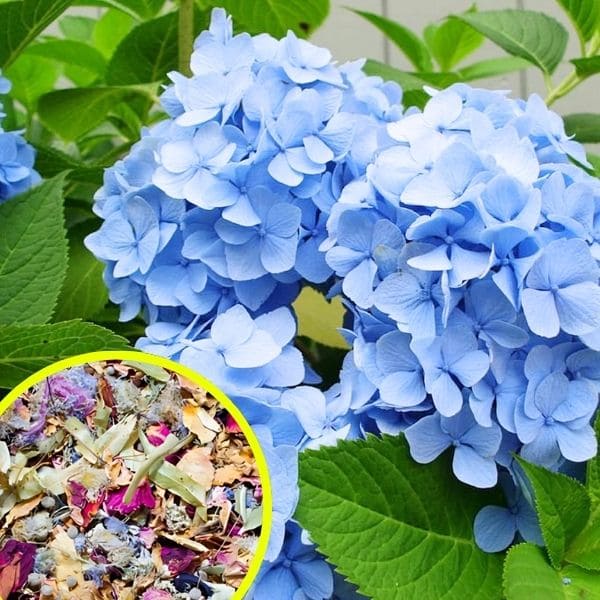
How to Prevent Ants From Hydrangeas
Pest Control
The most useful way to get rid of ants in hydrangeas is controlling aphids. Aphids secrete honeydew, a sugary substance that ants love. To break this cycle, you need to tackle the aphids first.
One effective strategy is using insecticidal soaps. These soaps can safely kill aphids by breaking down their outer shells.
When applying insecticidal soap, remember to cover the underside of leaves where aphids like to hide. For a more natural approach, I recommend neem oil. It’s a potent, organic solution that not only kills aphids but also repels them.
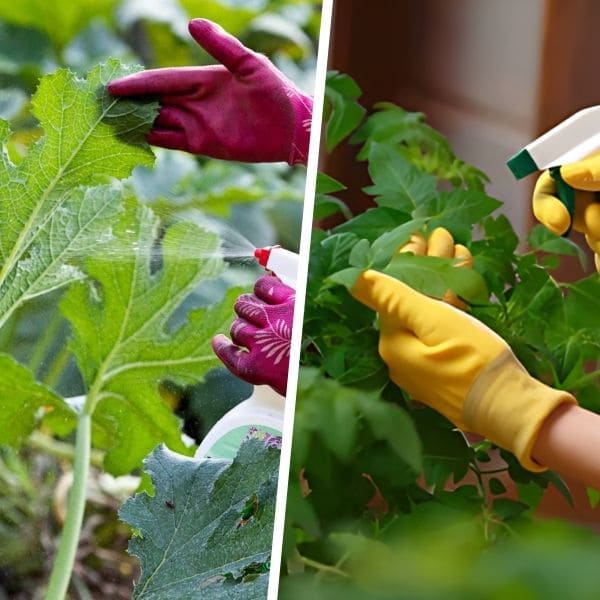
Another great natural remedy is introducing beneficial insects like ladybugs or lacewings to your garden. These predators feast on aphids and can significantly reduce their numbers.
Cleaning and Maintenance
Regular cleaning is essential. I make it a habit to inspect my garden frequently and remove any dead leaves or flowers that have dropped to the ground. This not only keeps the area tidy but also eliminates the food sources that attract ants.
You can also use a rake or your hands, gather up the debris and dispose of it properly. Composting away from your garden is a good practice to prevent ants from simply moving to another part of your yard.
Additionally, keeping the mulch layer thin and turning it regularly can help disrupt any ant colonies that might be forming.
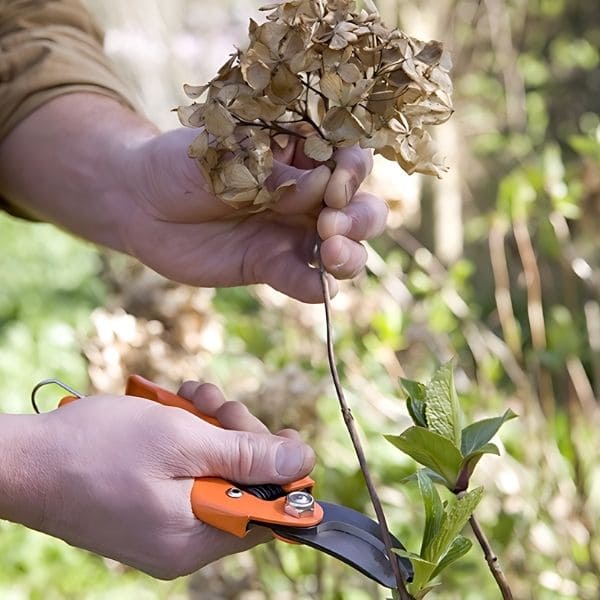
Using Barriers and Deterrents
To remove ants from hydrangeas effectively, you can use a sticky barrier around the base of the hydrangea. Products like Tanglefoot are designed for this purpose. They create a sticky surface that ants can’t cross, effectively preventing them from reaching the plant.
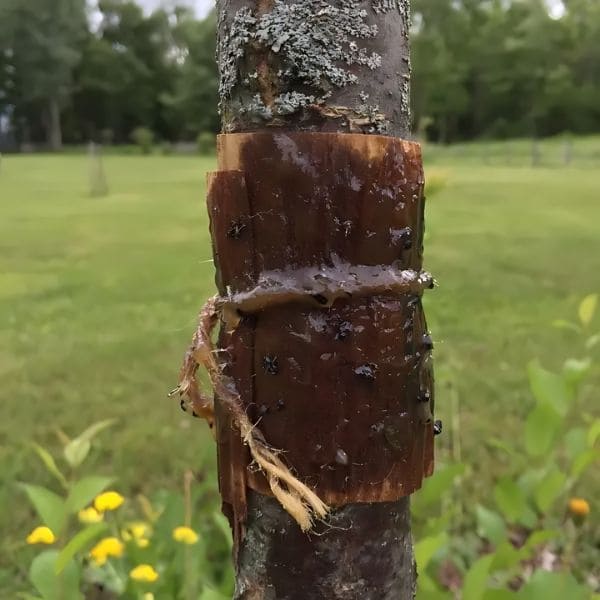
If you prefer natural deterrents, consider using diatomaceous earth. This powdery substance, made from fossilized algae, is safe for plants and pets but deadly to ants. Sprinkle a thin layer around the base of your hydrangeas. The tiny particles will pierce the ants’ exoskeletons, causing them to dehydrate.
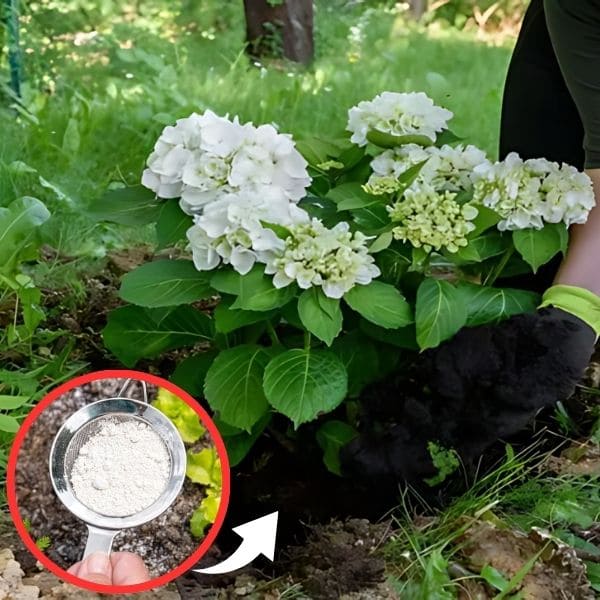
Another useful deterrent is using essential oils. Ants are repelled by strong scents like peppermint, tea tree, and citrus. You can create a simple spray by mixing a few drops of essential oil with water and spraying it around the base of your plants.
Ensuring Plant Health
Healthy plants are more resilient and less likely to attract pests like aphids.
You can start with watering your hydrangeas correctly. They prefer consistently moist soil, but not waterlogged conditions.
Overwatering can create an overly damp environment that attracts ants, while underwatering can stress the plant, making it more susceptible to pests. So water your hydrangeas deeply once a week, ensuring the soil is well-drained.
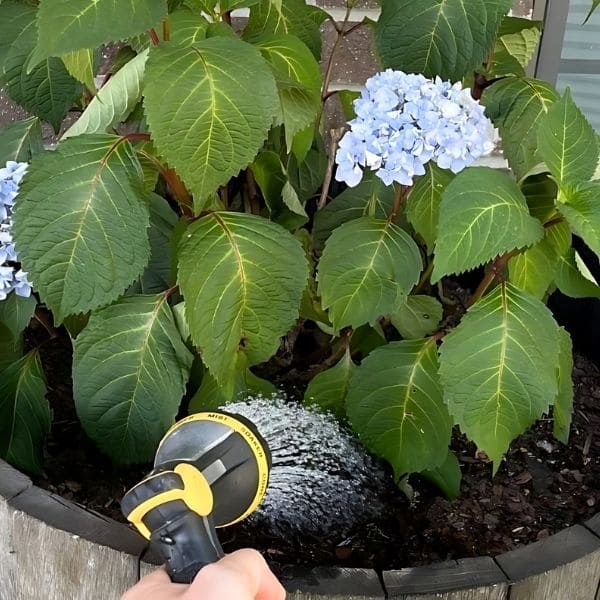
Feeding your hydrangeas is also crucial. Use a balanced, slow-release fertilizer in the spring and again in the summer. This provides essential nutrients that promote strong growth and robust blooms. Healthy, well-fed plants are better equipped to resist pests.
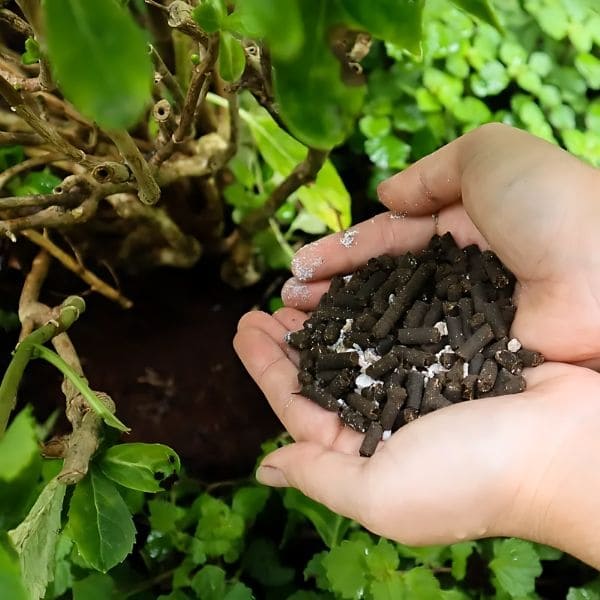
In addition, regular pruning is another key practice. Remove dead or diseased wood and shape the plant to allow good air circulation. This helps prevent fungal diseases and makes the plant less attractive to pests.
FAQs
Can I use household items to deter ants from my hydrangeas?
Yes, diluted vinegar and baking soda can help repel ants when applied around the base of your hydrangeas.
How often should I inspect my hydrangeas for pests?
Weekly inspections during the growing season can help detect and manage pests early.
Can ants spread diseases to my hydrangeas?
While ants don’t spread diseases directly, they protect pests like aphids that can carry diseases.
How can companion planting help reduce pests on hydrangeas?
Plants like marigolds, garlic, and chives can repel aphids and ants, protecting your hydrangeas.
Is it safe to use chemical ant killers around hydrangeas?
Chemical ant killers can be effective but should be used cautiously to avoid harming beneficial insects and soil health.
